Transgender adults in red states fear for the next generation as political attacks accelerate
Raised on her family’s farm in conservative Nebraska in the 1960s and ’70s, Ashley Swartz took her cues about life from her surroundings: At home, the men worked the farm; elsewhere, boys roughhoused and participated in sports; at church, there was good and there was evil.
Swartz identified more with girls — wanting to play the female roles when playing make-believe and wishing to be considered pretty rather than handsome. At the time, and for years to come, she buried her feelings, thinking them the work of the devil. She prayed to accept herself as the boy the world saw rather than the girl she believed she was.
“I always felt trapped and suffocated. I felt trapped in a life that made no sense to me,” Swartz, now 61, said.
Swartz, like many older transgender Americans, had hoped their younger counterparts would not be faced with the same challenges and despair. But now, watching growing political attacks and legislative efforts targeting trans people, she is fearful about what the future holds for the next generation, particularly those living in politically conservative states.
Thinking back, Swartz says the cost of hiding her true self was steep. She joined boys’ sports teams, modeled her community’s expectations for its young men and strived to be like her dad, a respected farmer.
“I gave up my childhood for boyhood,” she said.

As she got older, her senses and emotions dulled. Moving through life as the man the world saw, rather than the person she knew she was, meant performing rather than living. Her “soul was dying.”
Of the nearly 500 anti-LGBTQ bills proposed so far this year, more than 80 have become law, according to the American Civil Liberties Union. New laws targeting transgender rights include requirements that schools tell parents of any changes in a student’s appearance or behavior that could be construed to be an exploration of gender identity, and restrictions on bathroom use and sports participation. There have also been bans on gender-affirming health care for minors — including puberty blockers and hormones — even though such care has been widely endorsed by the medical community.
Trans people who came of age during a time when pop culture was rife with negative depictions of them, transition-related care was unavailable, and reliable information and safe spaces were largely nonexistent, are fearful the current political environment is condemning new generations of trans youths and young adults to the same marginalization, bullying and mental health challenges that they and many of their peers experienced.
Rejection, bullying and despair
Allison Scott endured bullying from teachers and classmates in her North Carolina hometown. Her mother largely rejected her, suggesting she was “gay,” although Scott had no idea what that meant. Her father regularly threatened to kill her, once pinning her against the wall and choking her because she wasn’t the ideal son.
“I didn’t make a conscious effort to be anything other than myself. I didn’t get it. I didn’t understand what he was talking about,” she said.
No place was safe for the awkward kid who didn’t exactly understand her feelings but didn’t try to be anyone other than the boy people saw.
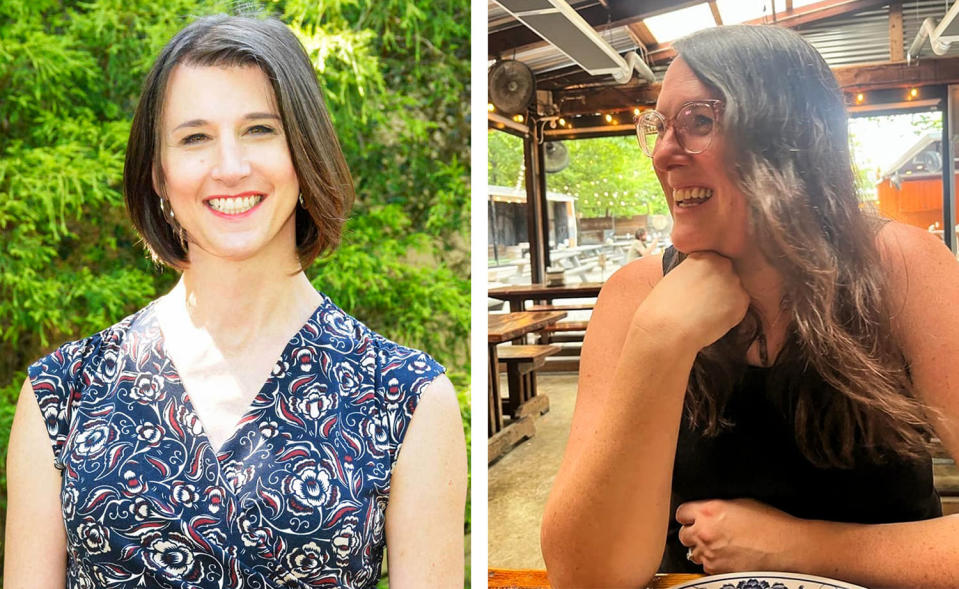
“I was a child. You know, home and school and my neighborhood were my life. That was my entire universe, and none of those people allowed for anything other than conformity,” said Scott, now 49.
The summer after she finished the fourth grade, Scott was sent to conversion therapy camp, where, for hours on the first night, the children were forced to sit painfully close to a raging bonfire.
“They told us that was the fires of hell and that we would all burn in that for all of eternity,” Scott recalled.
She mentally disassociated from her body that night and for the rest of the week, unable to bear the constant barrage of threats and condemnation.
After she was returned to her parents, and anticipating a new school year sure to include more bullying, Scott attempted to end her life. She was 10.
Similarly, Texas resident Jessica Gritton, 47, was raised in the Church of Jesus Christ of Latter-day Saints. She said the only messages she received about LGBTQ people were that they were “sinful” and bad.

“You can’t change who someone is by using threats or hurt or teasing or bullying, but you can hurt them,” said Gritton. “You can make their life harder and more lonely than it would be otherwise.”
When she was a child, she knew of no language to describe feeling emotionally disconnected from her body — so disconnected that she devoured television shows trying to understand how people were supposed to move and act because she was sure she was doing it wrong. But she suspected those feelings fell into the “sinful” category.
She buried those feelings and lived life as it was expected for boys in her Utah hometown: She undertook a religious mission trip to Washington, D.C., married, attended college and pursued a career.
Growing up without the words to describe what they were feeling, but understanding that society — and, often, their own families — had no space for being different, many trans adults say they were left alone to navigate a world where they knew they didn’t fit neatly.
As a child, Eli Rigatuso was a tomboy. He wanted to ride bicycles and motorcycles, hit the trails near his Nebraska home and work with his dad. But his mom pushed him toward traditional female gender roles, like cooking and cleaning. Rigatuso, a Native American who is part of the “first generation born off the reservation,” said his mom’s attitudes stemmed from being put in a U.S. Indian boarding school, where children were forced to shed their culture and language and were indoctrinated with Western ideals and religion.
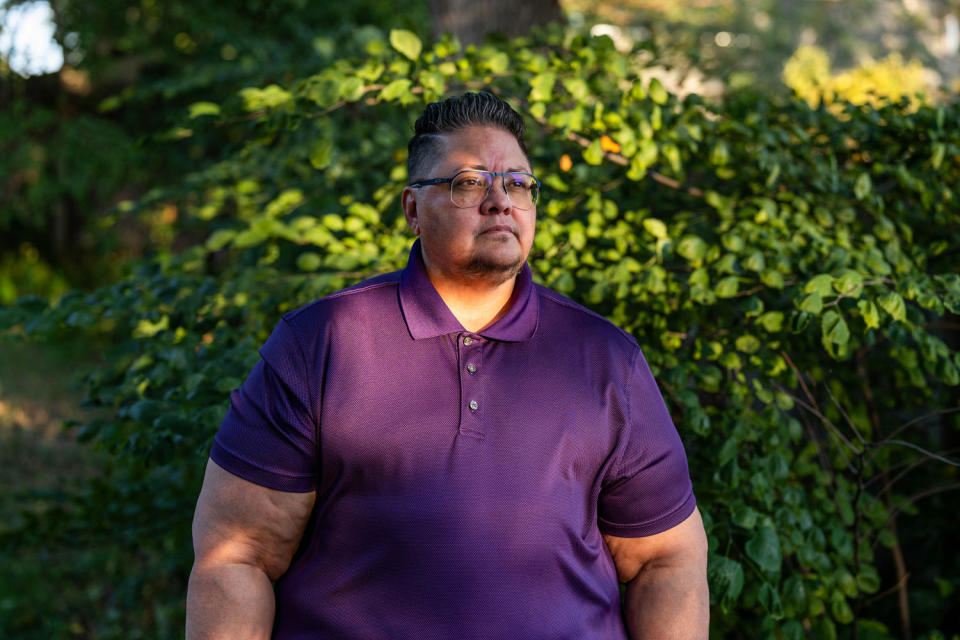
Although Rigatuso didn’t really understand the inner turmoil he was experiencing, his mom’s prohibition on discussions about sexuality and gender convinced him to bury whatever those feelings were. Already bullied at school because of his brown skin, he wasn’t looking to add reasons to draw more attention, he said.
As a young adult he lived as a “hyper-feminine” lesbian, but something was still off. Unable to identify and reconcile his feelings, Rigatuso fell into unhealthy relationships and substance abuse.
Research on affirming care
To avoid the rejection and despair that so many transgender people face, health care professionals who work with trans youths and young adults cite evidence that acceptance and access to appropriate care leads to healthier, and happier, lives.
Numerous studies have shown that trans youths with access to gender-affirming health care have a lower rate of suicide ideation and better mental health outcomes. Nearly 1 in 3 LGBTQ youths said their mental health was poor “most of the time or always” as a result of anti-LGBTQ legislation or policies, according to The Trevor Project’s 2023 U.S. National Survey on the Mental Health of LGBTQ Young People.
Access to gender-affirming hormones while still a youth is associated with better mental health outcomes in adults when compared to those who wanted them but were denied such access, according to a 2022 study published in the journal PLOS One.
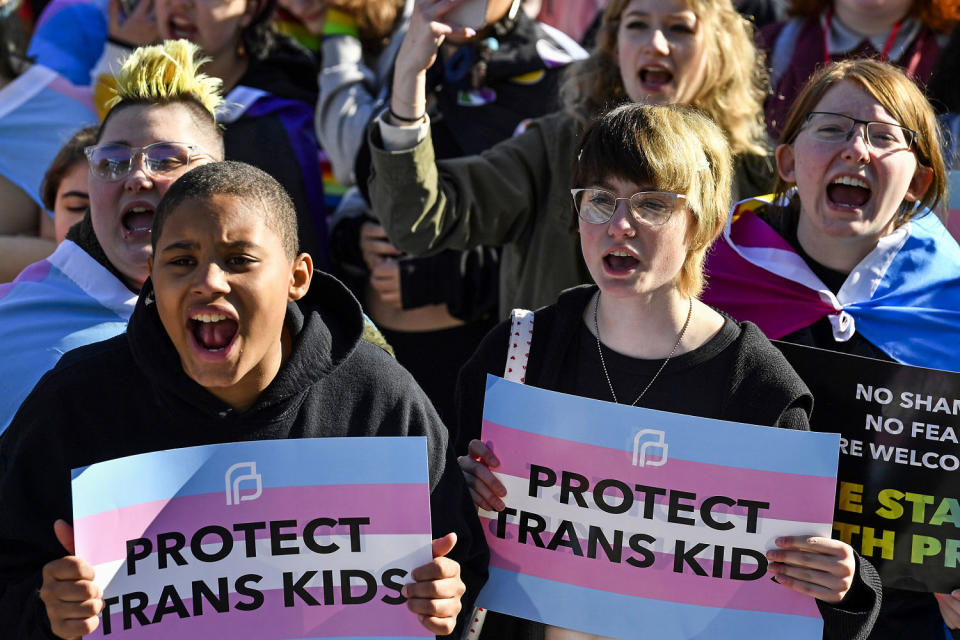
While there is broad agreement among medical experts that access to gender-affirming care improves mental health outcomes, it isn’t the only positive factor, said Dr. Jack Turban, assistant professor of child and adolescent psychiatry at The University of California, San Francisco, and lead author of the 2022 PLOS One study. Parental support for their child’s gender identity is an important predictor of good outcomes. Conversely, bullying and harassment have been shown to lead to poor mental health outcomes, Turban said.
A new research brief based on data from The Trevor Project’s 2023 mental health survey shows that LGBTQ youths who felt accepted by the adults in their lives have a significantly lower risk of attempting suicide.
“Gender affirmation is important and improves mental health, but if you don’t also pay attention to the societal environment that the person is living in, you’re doing them a disservice. It’s really vital that people not experience all this societal stigma,” Turban said. He added that even in states where anti-trans legislation is not being passed, anti-transgender rhetoric is deeply affecting young people, an assertion supported by at least one recent study.
Finding acceptance, embracing life
A deeply religious person, Ashley Swartz begged God to help her accept herself for who she is. She knew she couldn’t teach her own children to love themselves and live authentically if she couldn’t do that herself.
“I just walked out in faith and trusted God with this,” she said of finally accepting herself as Ashley. She was 33. “Everything changed in me. I felt like for the first time in my life I was connected to the world.”
Now, following Nebraska Gov. Jim Pillen’s August executive order narrowing the definition of gender in the state, Swartz has considered the once unthinkable: Should she leave the land where her roots are generations-deep and she is largely accepted?
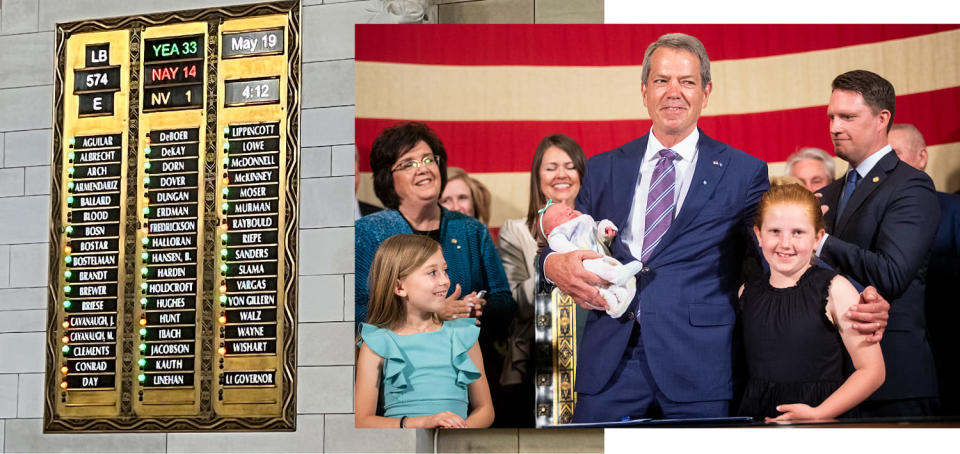
Where Swartz once believed being transgender was a curse she “would never wish on my worst enemy,” she now believes it is, in some ways, a blessing. She actively engages with communities of faith and seeks out opportunities to “meet people where they are.” She believes that, if they take the time to get to know her, they might open their hearts.
“I just feel like it’s important that we learn how to love one another, as Jesus said to ‘love me with all your mind and to love your neighbor as yourself.’”
Gritton said the teachings of the LDS church and her community made her ashamed of her feelings about her gender, and learning to shed that shame was a long and painful experience.
After decades of living the life she believed was necessary, Gritton began to search for answers to the persistent dysphoria and despair she could no longer ignore. Slowly, she came to accept herself as she is and, in the past five years, began hormone treatment.
She recently remarried and is grateful to have the love and support of her family and friends. But, she acknowledges, there are still scars from the pain and isolation she endured for years.
Rigatuso got sober, pursued a college career and found clarity and meaning in his life as an educator and advocate.
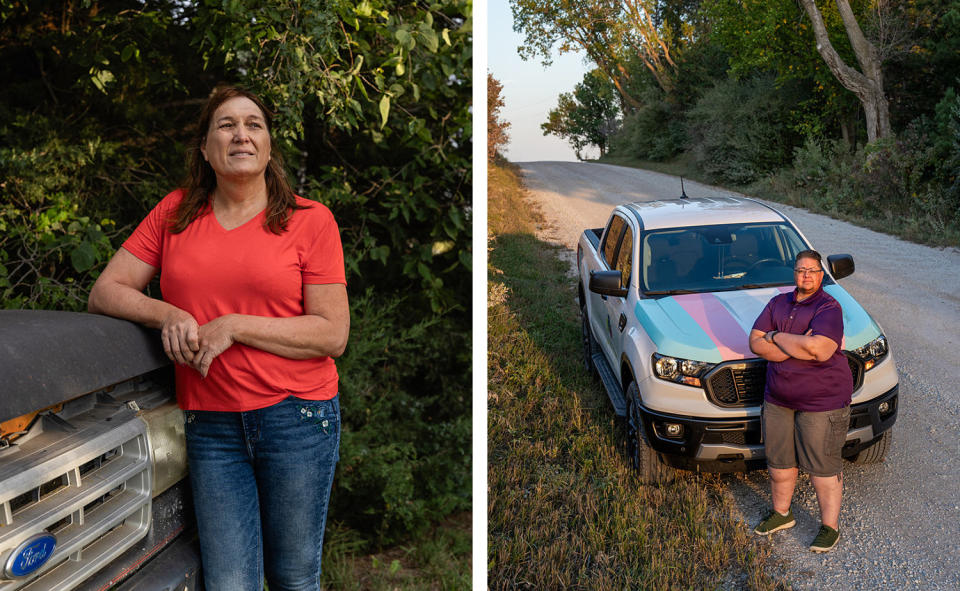
It was only after watching the 1999 film “Boys Don’t Cry” that Rigatuso saw in Brandon Teena — the film’s real-life central character who was killed for being transgender — someone whose experiences and internal struggles mirrored his own.
Years later, after Diane Sawyer’s 2015 interview with Caitlyn Jenner on ABC News’ “20/20,” the pieces started coming together. Rigatuso was 50 years old at the time.
Shortly after the interview aired, he visited his mom, who by then was in the early stages of dementia. She had also watched the “20/20” episode and told Rigatuso that it had made her reflect on his youth. She confided that, when he was 4 or 5 years old, Rigatuso had told her that he was a boy, not the girl the world saw. She then apologized, and told him she hadn’t known how to help him.
“In that moment, like, she gave me the biggest blessing,” said Rigatuso, who identifies as a queer trans masculine Two Spirit of the Menominee Nation. “Because, all of those things that I had locked up in that part of my brain and in my heart became real. She freed me.”
From that day until Covid took her in 2020, she would yell “my son is here,” when she saw him coming down the hall of her assisted living center for a visit. Despite having dementia, she misgendered him only a handful of times, he recalled.

While the current political climate has Rigatuso concerned for his own security, the 58-year-old is particularly worried about trans youths, who will be forced to grow up in a world as hostile as it was when he was young.
“I don’t want kiddos to go through all that,” he said. “I want them to be able to live their lives and thrive.”
That’s a hope Allison Scott shares. Scott, who works as director of impact and innovation for the LGBTQ advocacy group Campaign for Southern Equality, said she is hopeful that the tides will shift and those demonizing transgender people will soon lose their hold on public discourse. She believes that most people will recognize the harm caused by those attacks and will, once again, see the humanity of transgender people.
“I have the same problems and joys I think a lot of people have. I have the same fights with my 13-year-old over, like, what we’re going to eat this week and trying to get his hockey schedules straight,” she said. “I’m a big nerd … the joy I have rocking out to some music, river tubing down the river with family and friends and getting into water fights with tourists.”
After a quiet pause, she added, “I love my life.” She just hopes younger generations of trans people will have that same opportunity.
This article was originally published on NBCNews.com

